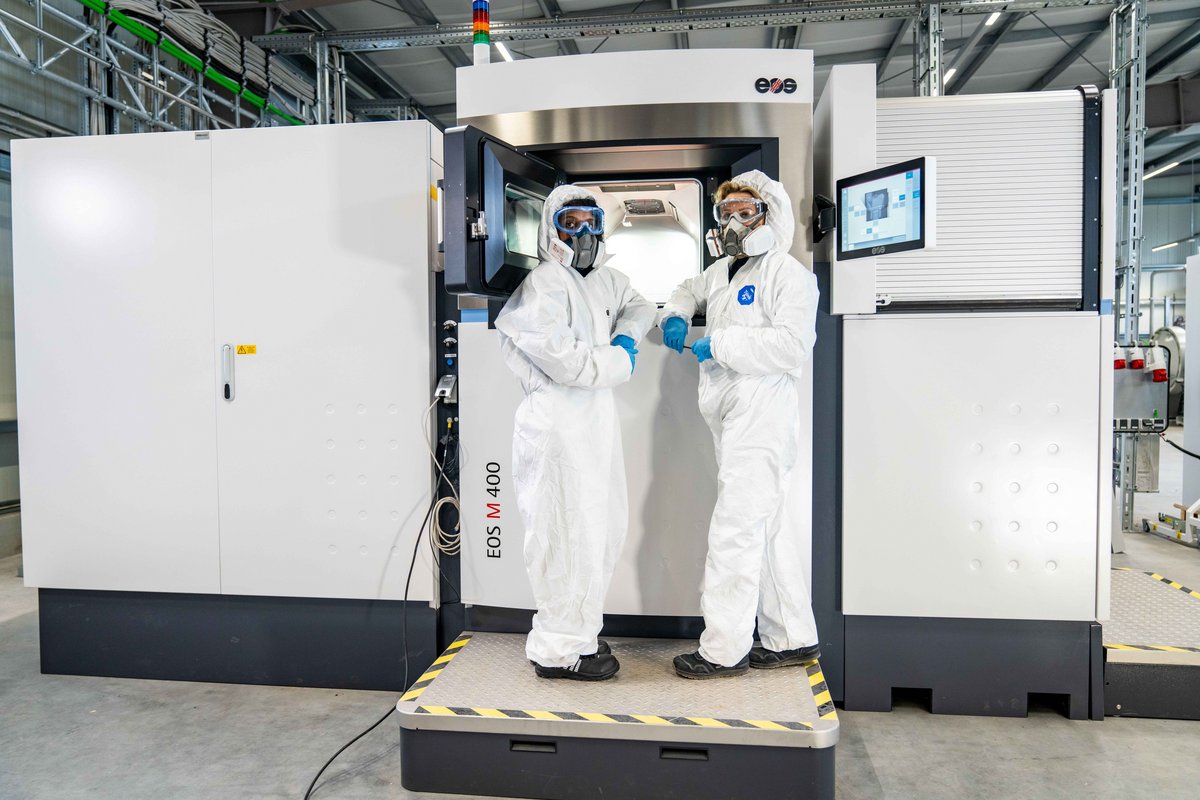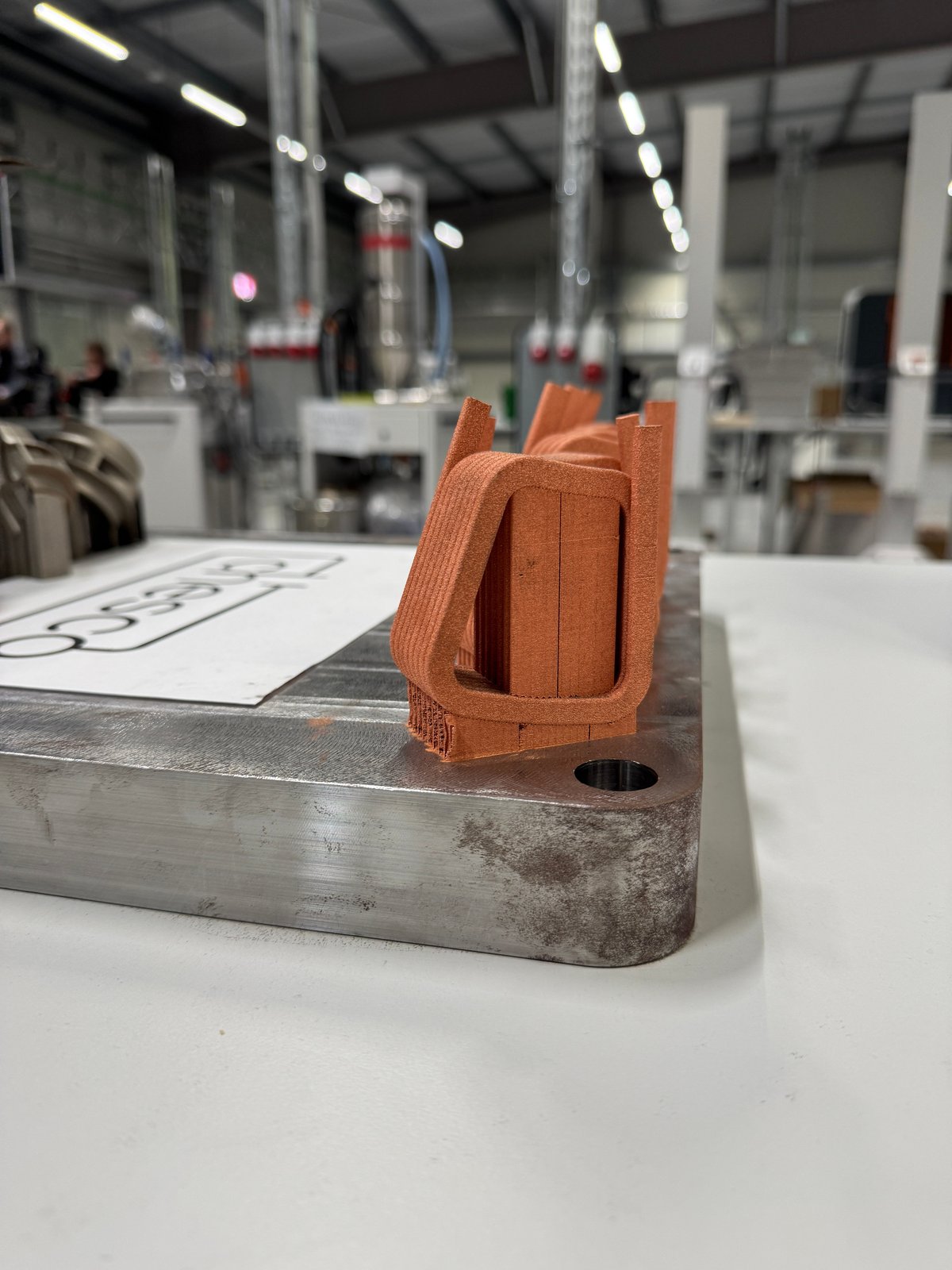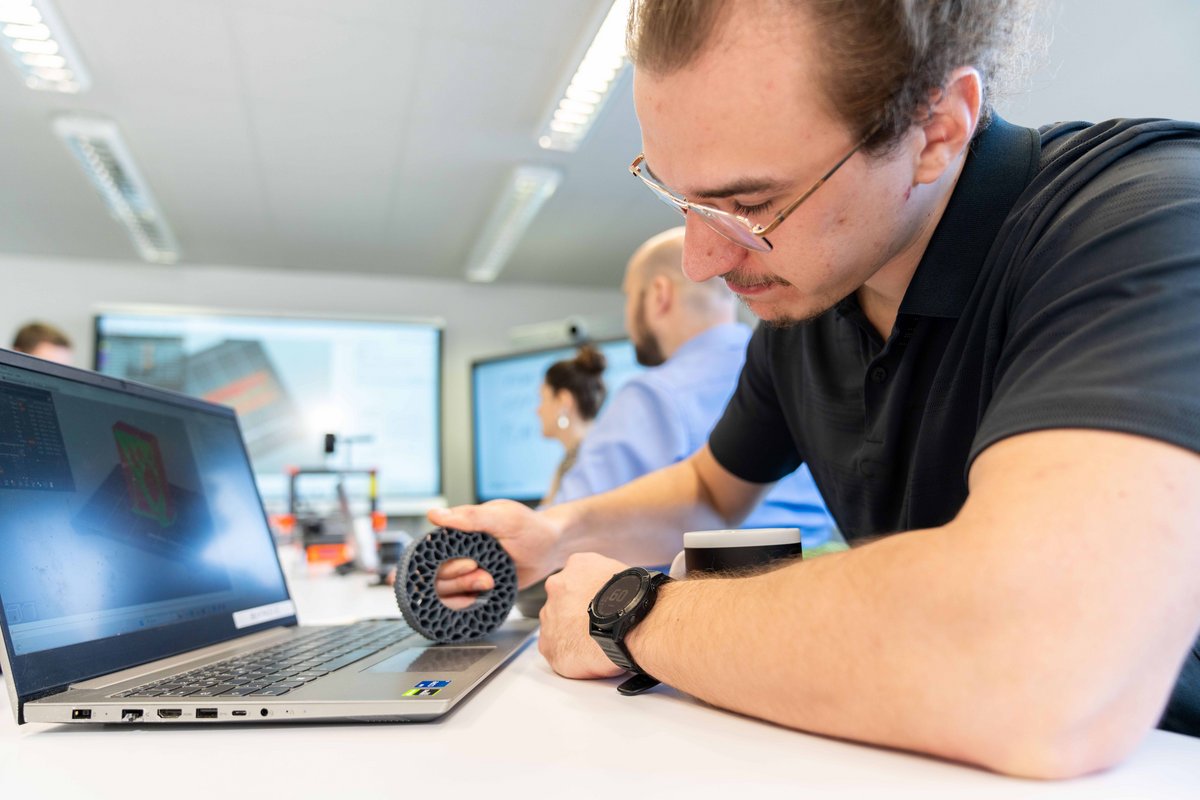Open day at the chesco research factory
At the Centre for Research into Hybrid-Electric and Electrical Systems (chesco), scientists at the Brandenburg University of Technology Cottbus-Senftenberg (BTU) are researching hybrid-electric and electrical systems for climate-neutral aviation, as well as for commercial vehicles, rail and shipping across all industries. The chesco research factory at the Cottbus-Dissenchen site and later in the new building on the site of the emerging Lausitz Science Park have state-of-the-art machinery with innovative production technologies at their disposal. The production facilities cover almost all process steps required to build prototypes for hybrid-electric and electric drives. In order to gradually reduce climate-damaging emissions, particularly in aviation, chesco is researching the combination of electric motors with conventional gas turbines, for example. This also includes individual components such as the construction of copper coils with special properties that can be used in electric motors.
Programme at the open day
At this year's open day, chesco will inform visitors about its research work: short presentations and special guided tours for adults and children through the production halls of the chesco research factory will provide a clear and understandable insight into the project's innovative machinery and research landscape. Visitors will also have the opportunity to experience various topics from chesco science and technology first-hand during the event. Mini-workshops will focus on 3D printing methods and applications, participants will be able to make their own multitool and carry out practical exercises on agile teamwork.
A wide range of activities will be organised for children. These include a bumblebee flight simulator, building electric motors together and face painting for children. Specially designed exit games make it possible to get to know chesco from a playful perspective. In addition, interested parties can test and expand their knowledge on the topics of climate neutrality, (electric) mobility and flying in the chesco quiz. The chesco will also be presenting the winning title of this year's fourth Brandenburg Science Slam organised by the Spremberg presence centre: "(e)mission (im)possible". The contribution will be presented again at the event.
About chesco
We make green mobility happen - that is the mission of the Centre for Hybrid Electric Systems Cottbus (chesco). The chesco is a research centre for hybrid-electric and electric drives. A new building will be constructed on the site of the Lausitz Science Park, where up to 400 employees will be able to conduct research into climate-friendly flight propulsion systems for short and medium distances. The research also covers the areas of commercial vehicles, rail and shipping. We are currently working in the chesco research factory in Cottbus-Dissenchen. The special thing about chesco is its unique facilities. The design, production, test and digital areas are equipped with the latest technology to develop, produce and test the function of prototypes centrally in one place. This project is funded by the federal government with funds from the Coal Regions Investment Act and co-financed by the state of Brandenburg.



